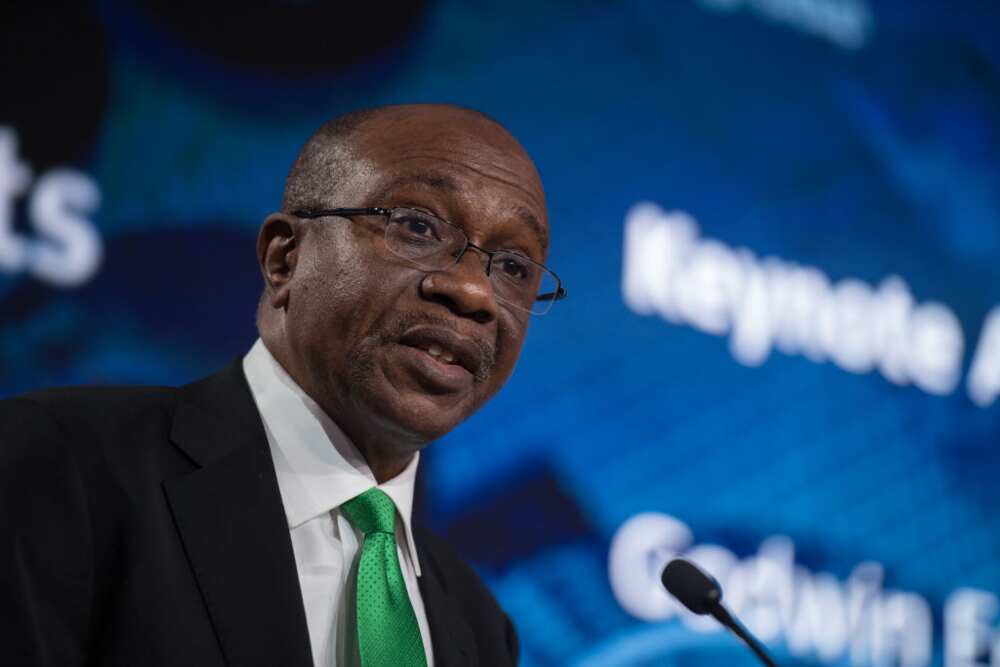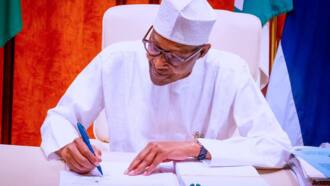Nigeria's Dollar Reserves Fall 550% Below Elon Musk's Value after CBN Withdraws $21.5m in First 6days of 2022
- Nigeria's external reserves is starting the new year exactly how it ended it, and is now 550% below Elon Musk's worth
- To meet forex demands, the Central Bank of Nigeria has again deep into dwindling reserves and pulled out $21.5m in the first six days of 2022
- In the month of December 2021, CBN withdrew consistently from the reserves a total of $634.1 million to close the year at $40.52bn compared to $41.1 as at Wednesday, 1 December 2021
PAY ATTENTION: Click “See First” under the “Following” tab to see Legit.ng News on your Facebook News Feed!
In the first six days of 2021, Nigerian external reserves dropped to $40.49billion following the withdrawal of $21.8 million by the Central Bank of Nigeria.
Data obtained from CBN's website shows that Nigeria's dollar reserves dropped from $40.52 billion on Friday, December 31, 2021, to $40.49 billion as at Thursday, January 6, 2022.

Read also
Rabiu is now the second-richest man in Nigeria details of how he unseat Mike Adenuga in 24 hours
As it stands, Nigeria external reserves of $40.52 billion is 549.5% lower than the Elon Musk's worth of $263 billion at at Sunday, 9 January 2022.

Source: Getty Images
Massive withdrawals from Nigeria's external reserves
From November to December 2021, Nigeria's external reserves as recorded massive drop after hitting 3-year high in October 2021(almost $42bn) following $3bn Eurobond proceeds and the $3.5bn Special Drawing Rights (SDR) allocation to Nigeria IMF.
PAY ATTENTION: Join Legit.ng Telegram channel! Never miss important updates!
Analysis of CBN data shows from October to 31st December, Nigeria reserves as fallen by 3.17 percent or $1.33 billion.
What makes up Nigeria's external reserves
Foreign reserves, according to the Central Bank of Nigeria, are assets kept in foreign currencies.
These reserves are utilized to back up liabilities as well as to influence monetary policy.
Foreign currencies, deposits, bonds, treasury bills, and other government instruments, special drawing rights (SDRs) are among them.

Read also
Debt servicing gulps 98% of Nigerian govt retained revenue in 2021, as salaries, others are funded with loans
The importance of foreign reserves
External reserves are critical because they are used to directly finance international payments imbalances or to indirectly regulate the scale of such imbalances by intervention in foreign exchange markets to alter the exchange rate of the country's currency.
Foreign reserves, in essence, provide the government with the confidence and resilience to absorb shocks when a country's currency falls or devalues.
Expert speaks
At the last CBN’s Monetary Policy meeting held on November 22nd and 23rd one of the members, Ahmad Aishah stressed on the need for the external reserves to be in good health.
Referencing an increase in reserves in early November, Aishah noted:
“external reserves increased by 0.17 per cent, from US$41.34 billion in October 2021 to US$41.41 billion as at November 18, 2021.
“This development will further sustain the current exchange rate stability at the Investors’ and Exporters’ (I&E) window with positive implications for domestic prices.

Read also
Report: Nigerians owes N90bn electricity bill forcing govt to write-off debts enough to build power plants
Similarly another member of the MPC, Obadan Mike Idiahi, also pointed out that the impact on external reserves, exchange rate, the balance of payments and foreign borrowing costs could be substantial.
He added:
“The external reserves stock is still at a rather uncomfortable level”
CBN Head criticises Emefiele's decision to ban BDC operators from selling forex
Meanwhile, Obadiah Mailafia, a former deputy governor of the Central Bank of Nigeria (CBN), has criticised the decision of the apex bank to stop providing foreign exchange to bureau de change operators.
Mailafia said the decision could weaken the value of the naira against the dollar and other foreign currencies, as there might be a scarcity of forex.
With his experience of the banking system in Nigeria, Mailafia said the banks might hoard forex for themselves and sell at a high cost to buyers whenever the lenders want.
Source: Legit.ng
